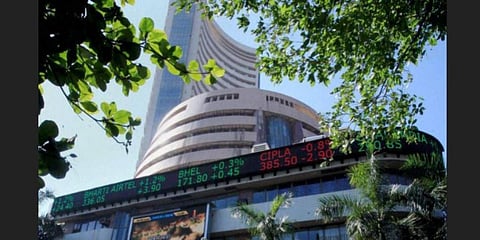

As the first half of the calendar year 2020 comes to a close, equity markets are riding on optimism. US markets are back to the same level as at the start of the year after going down earlier.In India, equity markets have staged a sharp recovery in April 2020 and held on to those gains in May 2020.
During the month gone by, foreign institutional investors have brought USD 1.7 billion of new money to equity markets while domestic institutional investors have put another USD 1.5 billion. That is a lot of confidence in a 'gloom and doom' scenario.
The institutional investor response to the rights issue offer of Reliance Industries was overwhelming in the context of the economic scenario. At the same time, companies like Kotak Mahindra Bank, Hindustan Unilever witnessed significant qualified institutional investor offers. They were absorbed quickly too. In the private market, close to USD 12 billion was committed to Reliance Jio Platforms from marquee investors around the world.
The optimism is primarily driven by a significant amount of money pumped by central banks. Idle cash in banks or even in bonds or risk-free assets is barely giving any returns. Borrowing rates around the world are so low that there is free money available. Over the past one year to March 2020, India’s Reserve Bank of India’s monetary policy committee (MPC) cut rates of 2.1 per cent.
A lot of investors have found solace in gold as they touch a record high due to the investor interest. However, industrial and consumer demand for gold continues to slump in major markets like China and India.
From India’s standpoint, low international oil prices are significant. They save some valuable foreign exchange and keep the current account deficit in check. The latest RBI data shows a record piling up of foreign exchange reserves.
Despite all that enthusiasm, Indian shares have been under-performers in comparison to other major stock markets. The benchmark indices like Nifty and Sensex are down 17 per cent in 2020 thus far. Investors in India are less optimistic than other major markets in the world as Indian equities have relatively under -performed.
There are valid reasons. "Several high-frequency indicators point to dire growth outcomes in the near term," Chetan Ghate, a member of the RBI’s MPC said during the monetary policy review. RBI released minutes of that meeting last week.
The committee that sets interest rates has highlighted a demand problem. That means businesses are unlikely to see a significant increase in business volume as people grapple with jobs and incomes and spend less. The Consumer Confidence Survey conducted by RBI in May 2020 paints a grim picture. It shows that the overall Current Situation Index is at a historic low, while the Future Expectations Index reflects high pessimism for the year ahead.
Stockbrokers continue to highlight that profits of any kind are likely to be wiped by the year ending March 2021. If the economic activity slumps in 2020-21, it is not possible for businesses that ride on the nation’s economic growth to sell more goods and services and make money.
Financial markets would toe that line, thinking sooner than later. The most crucial point of concern is the inability expressed by the RBI in their communication about growth and inflation prospects. They cite weak data for not making an assessment. That is a bit unprecedented as financial markets depend on RBI to provide cues.
There are many doom-sayers in the market. Predictions for economic growth vary depending on the perspective used. Since the consumption expenditure of both the government and the people is a dominant part of India’s economic growth, we may have to worry about the collapse in the consumer confidence over the next year. The government has limited resources, and individuals are losing jobs or staring at an income uncertainty.
From an equity investment standpoint, a long-term perspective could help. Any crisis like this keeps share prices in check in the short-term. Since equity markets move in cycles, you are better off continuing with your systematic investment plans. If you are getting qualified advice on specific stocks, you should allocate savings for equity investments today to meet your long-term goals like retirement or your children’s professional education.
Capital flows in, but concerns remain
USD 1.7 billion worth of capital has been invested by foreign institutional investors in equity markets over the past month
USD 1.5 billion has been invested by domestic institutional investors in India’s equity markets over the past month
The optimism is primarily driven by a significant amount of money pumped by central banks. Idle cash in banks or even in boands or risk-free assets is barely giving any returns.
The most crucial point of concern is the inability expressed by the RBI in communications about growth and inflation prospects, where they cite weak data for not making an assessment. That is a bit unprecedented since financial markets depend on the RBI to provide cues
(The author is editor-in-chief at www.moneyminute.in)